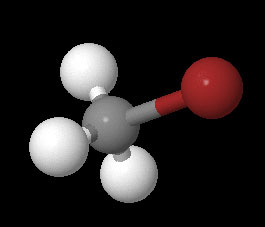September 10, 2007
It’s Time For Some Common Sense On Methyl Bromide

By Michael D. Shaw
As we approach the 20th Anniversary of the Montreal Protocol (on Substances That Deplete the Ozone Layer), what better time to review and reflect on the successes and failures of that endeavor? Among the many items in this treaty that should be revisited, the phase out of methyl bromide sticks out like the proverbial sore thumb.
Long renowned as a great friend of the agricultural industry, methyl bromide safeguards crops and protects the soil. And yet, a handful of critics—most of whom do not realize the importance of this agent, nor recognize the severe consequences that will befall the United States if we summarily ban the use of methyl bromide—want this molecule to forever disappear.
But, even if all man-made methyl bromide were to be eliminated, more than 80 percent of the current volume would still be released into the atmosphere, since the compound occurs naturally—in oceans, salt marshes, and in the burning of biomass.
Hampered by zealotry, and apparently indifferent to various studies that endorse the controlled use of methyl bromide, these critics are strangely silent when asked a very basic question: If we ban methyl bromide, how will we protect ourselves against the soil borne diseases, insects, and weeds that threaten to destroy family farms? After all, methyl bromide is a broad spectrum pesticide that also controls rodents and other pests that are a threat to public health. Methyl bromide truly does play a pivotal role in maintaining the safety of the food supply—so essential to modern American life.
Methyl bromide is a fumigant, making it a crucial tool for use in food processing, as well as in warehousing operations, to meet quarantine standards for commodities shipped to foreign markets. One of the few bright spots in America’s trade picture involves agricultural exports. Thus, the economic and trade implications of a complete ban are staggering.
Given methyl bromide’s role in maintaining the viability and safety of the U.S. food supply, this matter clearly has national security implications. If we ban the use of the chemical, or impose so many restrictions that have the same effect, then we will have to import an even greater amount of food from countries that do not share our emphasis on safety. The recent melamine contamination of pet food ingredients imported from China should serve as a warning to those bent on sending U.S. agriculture back to the stone age.
While critics allege that organic farming can be an alternative approach to the use of methyl bromide, this argument is misleading at best. Certainly, community-based organic farming can produce a small harvest of crops destined to be consumed locally. But, even the most ardent proponents of organic agriculture never intended for it to be a substitute for extensive commercial farming, as a method to bring nutrition to millions of people.
Run the numbers. Without methyl bromide, many important fruit and vegetable crops simply could not be produced at a reasonable price in the US. The loss of methyl bromide would likely result in massive shortages and without a doubt would raise the cost and availability of those very fresh fruits and vegetables which have been identified as critical weapons in the fight against obesity.
Listen to Dr. Oleg Daugovish, an organic and sustainable agriculture coordinator at the University of California Cooperative Extension in Santa Paula:
“There’s no alternative as good as methyl bromide. It was kind of one of those silver bullets that cannot be replaced.”
The California Strawberry Commission has spent more than $10 million searching for alternatives, according to Rick Tomlinson, the Commission’s director of public policy:
“There are no alternatives that produce the same yields. Basically, you get about a 50 percent loss in yield and then you have a higher risk of crop failure.”
And, how do the zealots respond? “We don’t need strawberries.”
Beyond protecting our food supply, clinical research by the University of Florida’s Dr. Rudi Scheffrahn has shown that methyl bromide—long known to be effective against E. Coli—kills live anthrax spores. For this reason alone, the US and the international community should reconsider the phase out of the chemical.
Methyl bromide is a cornerstone of safety for the U.S. economy in general and farming in particular. Its continued use—and availability—is a national security issue. For the sake of our own health and the vibrancy of our country, the course is clear: Stop the phase out of methyl bromide.

